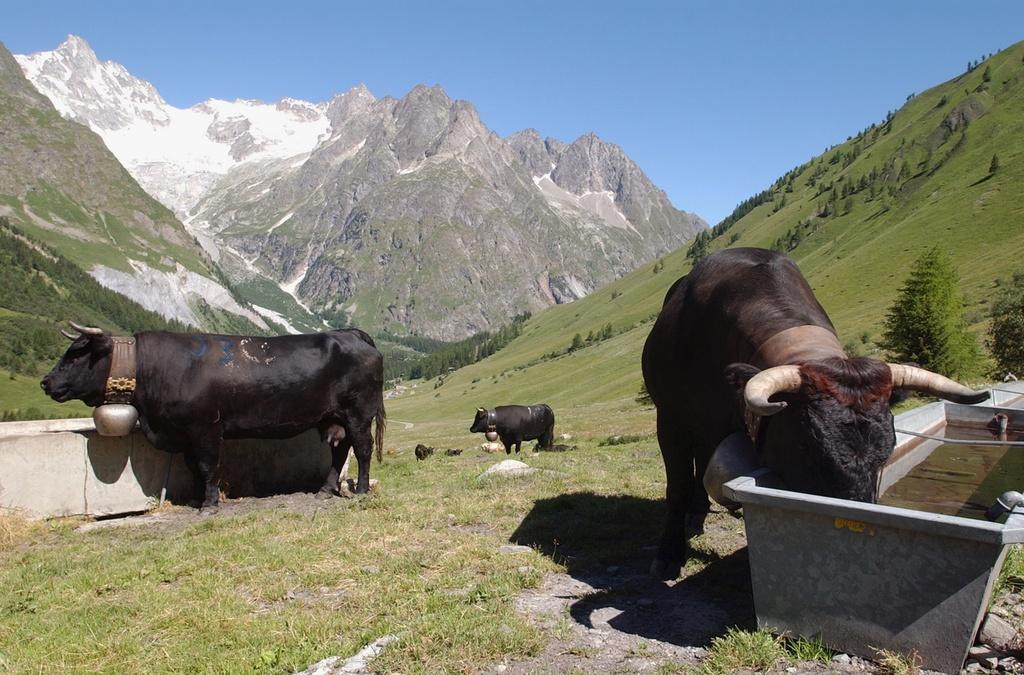OECD: Swiss farming needs competitive boost

Swiss agricultural policies have become more efficient over the past 20 years, but trade barriers and direct payments to farmers remain too high, the Organisation for Economic Co-Operation and Development (OECD) says.
The OECD report, released on FridayExternal link, has reviewed agricultural policy reforms since the mid-1990s as well as the overall competitiveness of the Swiss food industry and found some areas wanting.
Switzerland has one of the highest levels of farming subsidies of all OECD countries.
“Switzerland has taken strong steps to reform its farm policies, but it needs to maintain momentum through further reductions to border protection and additional revisions to its system of direct payments to farmers,” said Frank van Tongeren, head of the policies division of the OECD’s trade and agriculture directorate, during a presentation in Bern.
“The reform process must be designed to reconcile the potentially conflicting objectives of current Swiss agricultural policy,” Tongeren said in an OECD statement.External link
The OECD suggests a two track system: a differentiated direct payment system for preserving cultural landscapes or biodiversity, as well as subventions to allow “potentially competitive producers more freedom to optimise their production and respond to market signals”.
Competitive spirit
The OECD said its recommendations followed analysis of “the relatively high cost to Swiss consumers and taxpayers of agricultural support policies” which currently represent about 1% of Gross Domestic Product.
Reforming farm support policy could help boost the competitiveness of the parts of the Swiss food industry that mainly rely on domestic agricultural raw materials. Lowering input costs while keeping the Swiss brand image for domestic and foreign customers is likely to be more sustainable than shielding the industry from competitive forces, the OECD added.
It pointed to the “positive experience” after the opening the Swiss cheese market to European Union competition in 2007 and the elimination of milk quotas in 2009.
Further aligning Swiss and EU agricultural prices would lead to gains for consumers that exceed the losses to farmers and taxpayers, the OECD maintained.
Farmers disagree
The Swiss Farmers’ Association did not agree with the study’s findings, External linksaying in a statement that the OECD had repeated its “usual rules requiring liberalisation” and that its statements were not very innovative and were inconsistent.
“For the Swiss Farmers’ Association it is obvious: the OECD has not taken note of the fact that Switzerland has an agricultural policy that is consistently aligned with its constitutional objectives and, in terms of sustainability, is among the most modern worldwide,” it said in a statement.
The association accused the OECD of ignoring the special needs of mountain regions and the problems of worldwide market liberation apparent in the stalemate in the latest Doha round of trade negotiations.
“Government funding to compensate public service obligations has been constant for over ten years,” the association added.
It concluded that it was good that the government had to follow the public’s wishes rather than those of the OECD.

In compliance with the JTI standards
More: SWI swissinfo.ch certified by the Journalism Trust Initiative


You can find an overview of ongoing debates with our journalists here. Please join us!
If you want to start a conversation about a topic raised in this article or want to report factual errors, email us at english@swissinfo.ch.